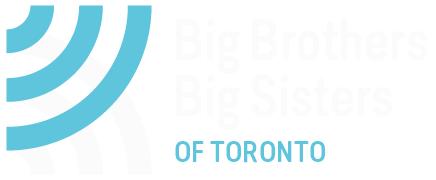When Jamil Jivani initially published Why Young Men: Rage, Race and the Crisis of Identity, he was expecting to take part in a small but meaningful book tour. He hoped to reach young men like the ones he had written about, and start conversations that could spark real change in their lives.
But that plan changed after Jamil was diagnosed with stage IV non-Hodgkin’s lymphoma. His diagnosis threw everything into chaos. The book tour was delayed and while Jamil was spending time with family and loved ones and thinking about his next steps, he used the opportunity to be much more deliberate about his strategy. He knew that his book had the capability to make a strong social impact.

During the first speaking engagements for the book, Jamil’s words were hitting home. His presentations were encouraging young men to open up about their own experiences with depression, gun violence, and family incarceration. But Jamil was finding these issues far too complex to untangle at a single speaking engagement.
“I had kids coming up to me after my talks confiding in me that they had recently considered buying a gun, or that they were really struggling with depression and wondering how I was able to keep going; they were very raw and emotional. And I felt very conflicted, because I wanted to be able to give them my time and talk to them, but I’m then being rushed to another city to give another talk. I was uncomfortable with the idea that I was starting these conversations and then leaving. ‘Follow me on Instagram!’ I knew I wasn’t able to do these things alone. I needed to be able to direct these kids to someone in their own city, in their neighbourhood, who they might be able to talk to about these things,” Jamil explained.
When Big Brothers Big Sisters of Toronto reached out to Jamil looking to partner, all the pieces fell into place. We were able to provide a grassroots support structure that could help young men navigate after Jamil had moved on to the next city.
“Another benefit of the partnership with Big Brothers Big Sisters, was that instead of just doing media interviews or talks at universities, I’d also be going to the communities that might benefit most – typically underserved communities – who have the most to say about the subject matter of my book,” Jamil said. “BBBS is uniquely focused on kids like me, kids who might not have adults in their lives who can be good examples and provide a support system.”

The new book tour proved to be a powerful collaboration for everyone involved. Jamil visited 15 cities over the course of two months, traveling from Vancouver to Halifax and partnering with a local Big Brothers Big Sisters agency, and the Pinball Clemmons Foundation, at every stop along the way. The local agencies invited their communities to hear Jamil’s story, while he delivered a powerful message that resonated with at-risk youth who might not have found his book under ordinary circumstances.
All told, Jamil reached more than 5,500 Canadians at around 40 separate events. He also started interviewing people in the community, turning the audio and video recordings into a project that would eventually become The Road Home podcast series.

Jamil describes the Canadian leg of the tour as far more rewarding than the stops in Australia and the US, neither of which had a comparable Big Brothers Big Sisters program to work with. “A national organization that is connected to communities all across the country is a really unique thing. I don’t think we could have done the tour the way we wanted to without Big Brothers Big Sisters,” Jamil said.
Jamil and most of the young men he grew up with didn’t have the benefit of Big Brothers Big Sisters, and he thinks that this is for several different reasons. “Being present and spending time,” truly the most important part of being a Big, is a “hard thing for a lot of men to visualize in their own families, never mind for someone else’s child,” Jamil said. “I think a lot of men don’t see themselves as being qualified for that sort of thing — they have this conception of the word ‘mentor’ as something scary and intimidating. But it’s not. There’s a disconnect there. All you need to do is spend time and listen. There are men out there able and willing to invest their time and their energy. It’s something a lot of people can do.”
